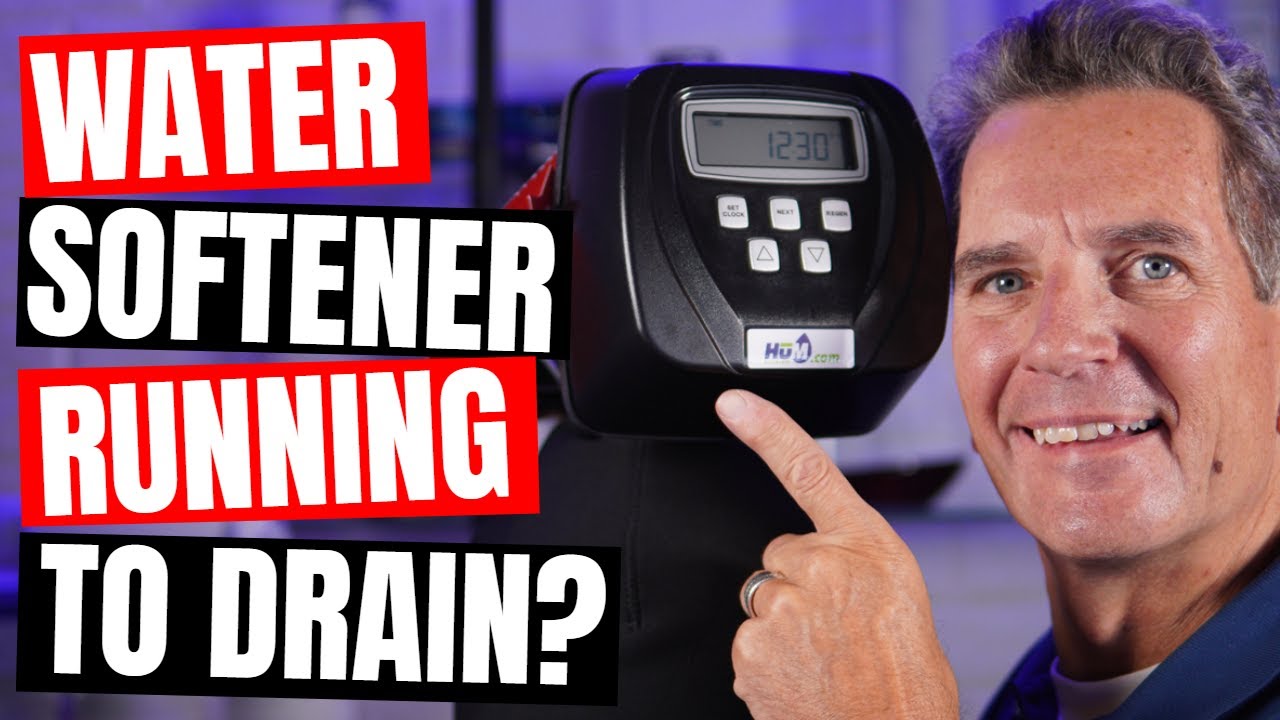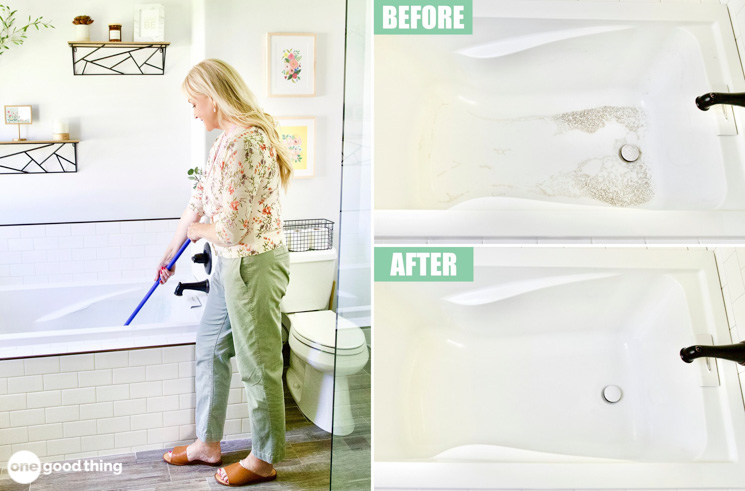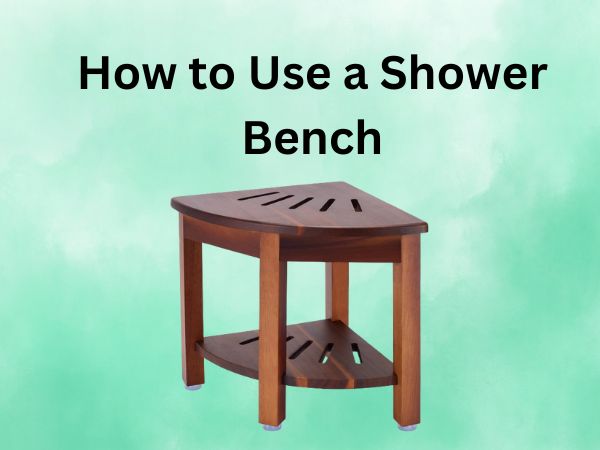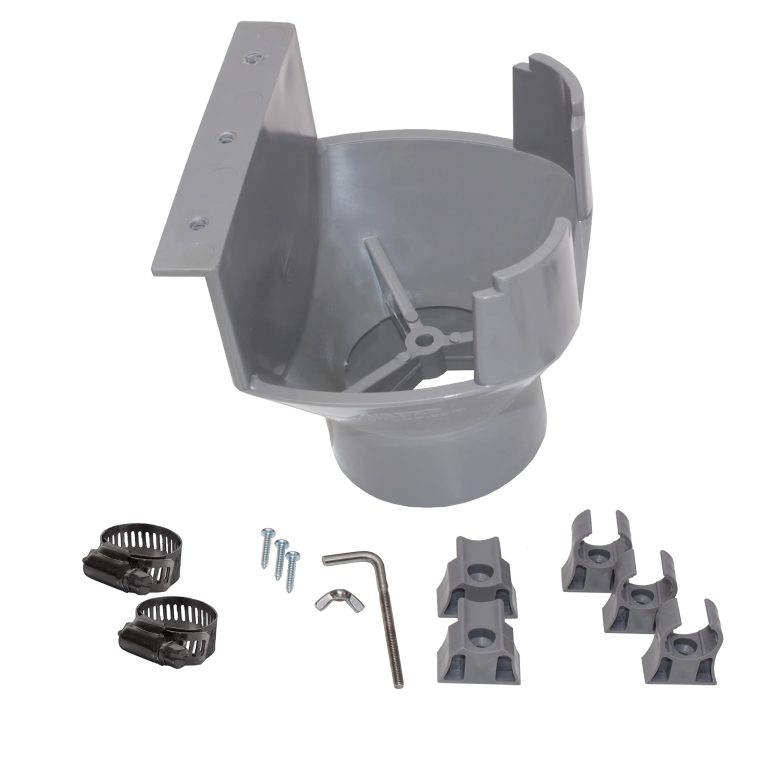Clack Water Softener vs Culligan: Which Reigns Supreme?
Clack water softener and culligan are two brands of water softener systems that are popular in the market. In comparison, clack water softener is generally more affordable and efficient, while culligan offers superior features but at a higher expense.
Water softening is the process of removing minerals such as calcium and magnesium from the water supply. These minerals can cause damage to appliances and fixtures and leave stains on clothing and dishes. That’s why many homeowners opt for water softener systems to ensure that the water they use is free from harmful minerals.
When it comes to choosing a water softener system, clack water softener and culligan are two prominent brands that vie for customers’ attention. In this article, we’ll compare the two brands to help you make an informed decision.
Table of Contents
Clack Water Softener Vs Culligan: The Ultimate Showdown – An Overview
Clack water softener vs culligan: the ultimate showdown – an overview
Choosing a water softener can be a daunting task, with so many options available in the market. We’ll be comparing two of the most popular water softeners: clack and culligan. Both of them are renowned for their superior quality and durability.
But which one should you choose? Let’s dive in and explore the key differences.
Brief Introduction To Both Clack And Culligan Water Softeners
Clack water softeners are known for their advanced digital technology. They offer high-efficiency resin, which reduces salt usage and saves water. Clack also offers twin-tank water softeners, which ensure that you’ll never run out of soft water.
Culligan water softeners provide customized solutions for households of any size. They offer a range of products that cater to various water hardness levels found in different regions. Culligan water softeners use smart technology to monitor your consumption patterns, so you always have soft water when you need it.
Comparison Of Both Water Softeners Based On Their Features, Specifications, And Performance
Here’s a detailed comparison of the two water softeners based on their features, specifications, and performance.
Clack Water Softener
Features:
- Advanced digital control head
- High-efficiency resin
- Twin-tank design
- User-friendly interface
- Brine recycling system
- Salt-saving technology
Specifications:
- Dimensions: 48” h x 26” w x 14” d
- Maximum flow rate: 18 gpm
- Resin tank size: 12” x 52”
Performance:
- Regeneration time takes less than an hour
- Improves water quality and taste
- Reduces soap usage
- Prevents staining on clothes and fixtures
Culligan Water Softener
Features:
- Customizable for different water hardness levels
- Smart technology
- Easy-to-use control panel
- High-capacity resin
- Space-saving design
Specifications:
- Dimensions: 47” h x 20” w x 20” d
- Maximum flow rate: 14 gpm
- Resin tank size: 9” x 48”
Performance:
- Regeneration time takes less than two hours
- Removes hard minerals such as calcium and magnesium
- Reduces soap usage and energy bills
- Extends the lifespan of water-using appliances
Explanation Of The Importance Of Comparing Both Water Softeners Before Choosing One
Choosing the right water softener for your home is crucial. A water softener is a long-term investment that affects your household’s water quality and your budget. Both clack and culligan offer top-of-the-line water softeners, but they have different features, designs, and pricing.
By comparing them, you can choose the one that suits your needs and preferences. You will also ensure that you make an informed decision and invest in the right water softener for your household.
Before purchasing a water softener, make sure to compare clack and culligan based on their features, specifications, and performance. Both manufacturers offer high-quality products, but they have distinct offerings that may appeal to different households. By taking the time to research and compare, you’ll have peace of mind knowing that you’ve made the right investment.
Performance And Efficiency Comparison
Clack Water Softener Vs Culligan: Performance And Efficiency Comparison
When it comes to water softening systems, choosing the right one can be quite a challenge. The two most popular options in the market today are the clack water softener and culligan. We will examine the performance and efficiency of both systems.
Explanation Of The Factors That Make Clack And Culligan Water Softeners Perform Well
Water softeners work by eliminating hard water minerals such as calcium and magnesium ions via ion exchange. However, to differentiate between the clack and culligan water softener systems, we have to understand the factors that contribute to their performance. These include:
• Resin Capacity
• Regeneration Frequency
• Salt Efficiency
• Water Usage
• Electricity Consumption
Detailed Comparison Of The Performance And Efficiency Of Both Water Softeners – Hardness Removal Capacity, Regeneration Time, Salt Efficiency, Etc.
Clack water softener:
• regeneration time: the clack system features a unique design that allows it to regenerate in as little as 30 minutes. This ensures that the system is always ready to handle hard water.
• hardness removal capacity: the clack system has a high-processing capacity, making it one of the most effective water softeners in the market. It can eliminate hardness minerals up to 75 gpg (grains per gallon).
• salt efficiency: clack systems have low salt consumption rate but have a high capacity to process hardness minerals.
• water usage: clack softeners are designed to use minimal amounts of water by optimizing the regeneration cycle.
• electricity consumption: clack water softeners require minimal electricity as they come with an efficient power controller.
Culligan:
• regeneration time: compared to the clack system, culligan has a longer regeneration cycle that can take up to 2 hours to complete.
• hardness removal capacity: culligan systems have a hardness removal capacity of up to 50 gpg, slightly lower than the clack system.
• salt efficiency: culligan systems consume more salt compared to the clack system but are known for their reliable and consistent performance.
• water usage: culligan systems use more water per regeneration cycle, which can result in higher water bills.
• electricity consumption: compared to clack systems, culligan requires more electricity to operate effectively.
Discussion Of The Effect Of Performance And Efficiency On Electricity Consumption And Water Usage
The performance and efficiency of a water softener can greatly impact the amount of water and electricity consumed. Clack water softeners, for example, have a higher hardness removal capacity that enables it to process large amounts of hard water, effectively reducing excess water usage.
Additionally, they require minimal electricity, which can lead to significant savings in energy bills.
On the other hand, culligan water softeners consume more water per regeneration cycle. This means that households using the culligan system may experience a higher water bill. Also, the requirement for more electricity to operate the culligan softeners may also have an impact on energy bills.
The clack water softener is a better option when it comes to performance and efficiency. The system’s high-processing capacity, low consumption of salt, minimal water usage, and low electricity consumption make it a top choice. However, households that prioritize reliability and consistent performance may want to consider using the culligan system.
Installation And Maintenance
Explanation Of The Features That Make Installation And Maintenance Of Both Water Softeners Easy
Installing and maintaining a water softener can be a daunting task, but luckily both clack water softener and culligan come with features that make the process easy:
- Both water softeners are designed for easy installation by a plumber or a diy enthusiast.
- They come with clear instructions to enable users to follow a step-by-step guide for installation.
- Maintenance for both water softeners is simple and straightforward.
- They have user-friendly digital control systems that make operation and maintenance easy.
Detailed Comparison Of Both Water Softeners Based On Installation And Maintenance
When deciding between clack water softener and culligan, installation and maintenance should be primary considerations. Here is a comparison of both models based on the respective aspects:
- Installation requirements: Clack water softener requires a minimum space of 25 inches by 40 inches, while culligan requires a minimum space of 15 inches by 18 inches. Clack water softener has a complex installation process, best suited for professional installation, while culligan has an easy installation process suitable for diy enthusiasts.
- Cost of installation: Clack water softener is more expensive to install than culligan. The reason being that it requires a professional installer, making the overall cost expensive. On the other hand, culligan has easy installation requirements, making it less expensive to install.
- Maintenance cost: Clack water softener is more expensive to maintain than culligan. The reason being that it requires a professional plumber for service, making the overall cost expensive. On the other hand, culligan has an easy and cheaper maintenance process, suitable for diy enthusiasts.
- Ease of maintenance: Both water softeners have simple maintenance requirements, but culligan water softener’s maintenance process is simpler than that of clack water softener. Culligan has a user-friendly digital control system compared to the complicated control system of clack water softener.
Explanation Of The Importance Of Considering Installation And Maintenance When Choosing A Water Softener
Installation and maintenance are essential considerations when choosing a water softener as they affect cost, ease of use, and the period of service. The right water softener should have easy installation requirements, reduce maintenance costs, and have straightforward maintenance requirements.
A suitable water softener should be able to offer the necessary benefits without incurring high installation and maintenance costs.
Customer Reviews
Clack Water Softener Vs Culligan: Customer Reviews
Are you in search of an efficient water softener but unsure which one to choose between clack and culligan? Well, customer reviews could guide you in the right direction. In this section, we’ll explore the importance of customer reviews in making purchase decisions and compare the customer reviews for both clack and culligan water softeners.
Explanation Of The Importance Of Customer Reviews When Making A Purchase Decision
Customer reviews play a crucial role in the buying process, and here’s why:
- They provide social proof: When you see positive reviews from other customers, it assures you that the product is reliable and does what it claims to do.
- They offer insights: Customer reviews can provide you with in-depth knowledge about the product, from its features to its reliability.
- They aid in decision making: Reading both positive and negative reviews from other customers can help you determine whether a product is right for you or not.
Comparison Of Customer Reviews For Both Clack And Culligan Water Softeners
We’ve gone through reviews left by customers who purchased clack and culligan water softeners, and here’s what we found:
- Clack water softener reviews: Customers seemed generally satisfied with the clack water softener, with many praising its easy installation process, quality of softened water, and its ability to reduce scale buildup. However, some negative reviews mentioned issues with customer service and unit failures.
- Culligan water softener reviews: While most customers were satisfied with the quality of water provided by the culligan water softener, some negative reviews mentioned problems with the unit breaking down or malfunctioning shortly after installation. However, the majority of positive reviews appreciated the pleasant customer service and reliability of the unit.
Discussion Of The Effect Of Customer Reviews On Purchase Decisions
It’s clear that customer reviews play an essential role in purchase decisions. Positive reviews can aid in convincing prospective customers to buy and negative ones to refrain from purchasing. In a world where online shopping is becoming more prevalent, it is vital to consider customer reviews before making a purchase.
It is also worth noting that some companies manipulate reviews by giving incentives to customers to leave good reviews. Hence, it is crucial to evaluate customer reviews from various platforms to get an accurate and truthful representation of the product.
It is always advisable to conduct thorough research and consult customer reviews before making a long-term investment like a water softener. This will help ensure you make your decision based on reliable and trustworthy information.
Price Comparison
Clack Water Softener Vs Culligan: Price Comparison
When it comes to choosing a water softener, there are many factors to consider, such as efficiency, performance, durability, and price. In this section, we’ll take a closer look at the prices of clack and culligan water softeners, discussing the features, specifications, efficiency, and performance that affect their prices.
We’ll also consider the importance of price when choosing a water softener, helping you make an informed decision that best suits your needs and budget.
Detailed Comparison Of The Prices Of Both Clack And Culligan Water Softeners
- Clack water softeners typically range from $500 to $2,500, depending on the model and features.
- Culligan water softeners are generally more expensive, with prices ranging from $800 to $3,500, depending on the model and features.
- Both clack and culligan offer a range of models with different features, capacities, and specifications to fit different budgets and needs.
- While clack is generally more affordable than culligan, prices may vary based on location, installation costs, and any additional features or upgrades.
Explanation Of The Factors That Affect The Prices Of Both Water Softeners – Features, Specifications, Efficiency, And Performance
- Features: Both clack and culligan water softeners come with various features like wi-fi connectivity, app control, regeneration options, and a warranty. Models with more features tend to be more expensive.
- Specifications: The size, capacity, and functionality of the system can affect the price. For instance, a larger system with a higher capacity may cost more than a smaller one.
- Efficiency: The level of efficiency of the system determines how much water and salt it uses. Systems with higher efficiency levels may come with a higher price tag.
- Performance: The overall performance of the system is determined by factors such as water hardness, regeneration time, and water flow rate. Systems that perform better may come at a higher cost.
Discussion Of The Importance Of Price When Choosing A Water Softener
- The price of a water softener is one of the most crucial factors to consider.
- While it’s tempting to go for a more affordable option, keep in mind that cheaper models may have limited features, lower efficiency levels, and shorter lifespan. Also, expensive units may not necessarily mean higher quality.
- Consider how the system fits your budget, while ensuring that it has the features, specifications, and performance that meet your needs.
- Additionally, check additional costs like installation and maintenance before making your final decision.
When deciding between clack and culligan systems, there are certainly big differences in pricing. By considering the features, specifications, efficiency, and performance of each, along with the importance of price, choosing the right unit should be a straightforward process. Keep in mind though that a water softener is a long-term investment in your home, and it pays to choose wisely.
Frequently Asked Questions For Clack Water Softener Vs Culligan
What Is Clack Water Softener?
Clack water softener is a type of water softening system designed to remove hard minerals from water.
What Is Culligan Water Softener?
Culligan water softener is a salt-based system that removes hard water minerals to provide soft water for your home.
How Do I Choose Between Clack And Culligan?
Decide based on price, water needs, salt consumption, and maintenance requirements. Consider what’s most important for your home and make a decision based on those factors.
Conclusion
After weighing the pros and cons of both clack water softeners and culligan, it is clear that they both have their strengths and weaknesses. The clack water softeners are known for their affordability, while culligan is known for their superior technology.
It ultimately comes down to the needs of the individual and their budget. Be sure to consider the size of your household, the hardness of your water, and the level of maintenance required before making a decision. However, no matter which brand you choose, make sure to prioritize the health and safety of yourself and your family.
Investing in a water softener is beneficial in the long run as it helps improve the quality of your water and can also save money on household expenses. So, take the time to research thoroughly and make an informed decision for your home and family.



![What Is The Best penetrating oil for stuck water valve [IN 2025]](https://bathroomexplorer.com/wp-content/uploads/2024/01/best-penetrating-oil-for-stuck-water-valve-.jpg)
![The 6 Best Bathroom Vanity Paints [In 2025]](https://bathroomexplorer.com/wp-content/uploads/2024/10/Best-Bathroom-Vanity-Paints.jpg)

